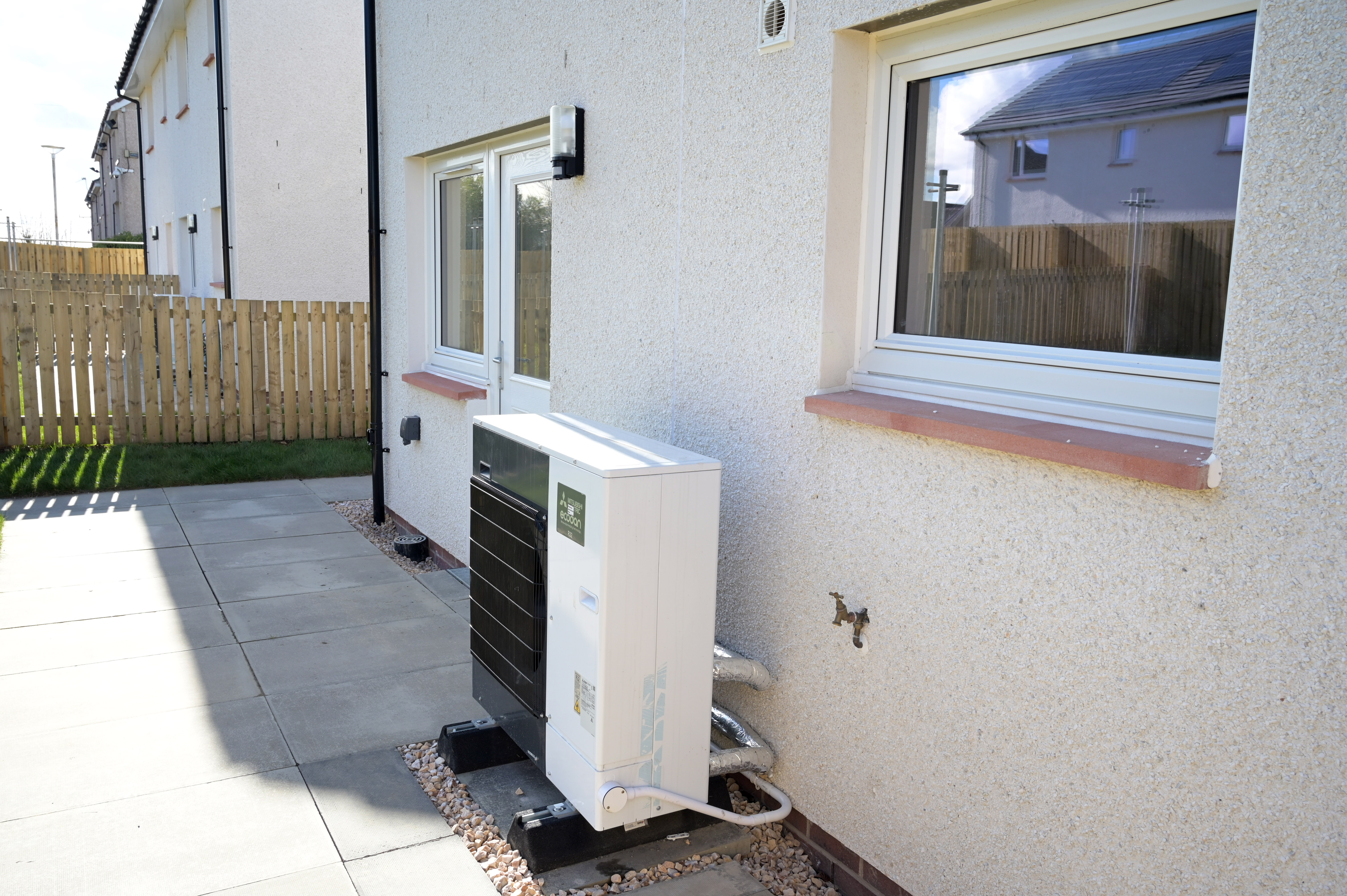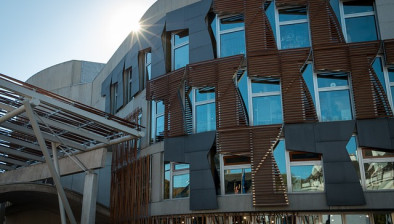Scotland’s 2030 climate goals ‘no longer credible’

Heat pump installations need to ramp up "significantly and rapidly", the report said
Scotland has no comprehensive strategy to decarbonise towards net zero and will miss its statutory 2030 goal to reduce emissions by 75%, a new report by the Climate Change Committee (CCC) has concluded.
The independent body established to advise the UK and devolved governments on emissions targets pointed to continued delays to the updated climate change plan and further slippage in promised climate policies.
The Scottish Government delayed its draft Climate Change Plan last year despite the 2030 target only being six years away. This has left a significant period without sufficient actions or policies to reach the target; the required acceleration in emissions reduction in Scotland is now beyond what is credible, the Committee warned.
Professor Piers Forster, interim chair of the Climate Change Committee, said: “Scotland has laudable ambitions to decarbonise, but it isn’t enough to set a target; the Government must act. There are risks in all reviewed areas, including those with significant policy powers devolved to the Scottish Government.
“Scotland’s Climate Change Plan needs to be published urgently, so we can assess it. We need to see actions that will deliver on its future targets.”
Having missed its annual target for 2021, the eighth time in the past 12 years that Scotland has done so, the only sectors to reduce emissions were electricity supply and industry.
Delivery progress of heat pump installations was singled out for being ‘off track’. In 2023, just over 6,000 heat pumps were installed in Scotland, which is less than half of the installations in the CCC’s pathway. According to the last Climate Change Plan update (2020 CCPu), meeting Scotland’s 2030 emissions reduction target requires heating system conversions of between 5% and 10% of homes, which equates to over 100,000 homes per year. The report called for action to ramp up “significantly and rapidly” if Scotland is to meet its future targets.
The transport and buildings sectors will also require a particularly rapid increase in the rate of emissions reduction to meet the targets set out in the CCPu, it said.
The 2020 CCPu requires emissions from heating buildings to decrease by 71% by 2030, meaning the annual emissions reduction rate must increase by almost a factor of ten.
The Committee welcomed bold proposals in the Heat in Buildings consultation, which if implemented could become a template for the rest of the UK. But it warned that these proposals must be delivered in practice and the planned rate of decarbonisation will not achieve those promised in 2020.
“As such, the Scottish Government should provide a timeline and avoid delays on the Heat in Buildings Bill and move towards its delivery,” the report said.
The report concluded: “This is a crucial time for net zero in Scotland. The handling of plans to close the Grangemouth refinery underlines the risk of omitting meaningful dialogue between communities, industry and government and the important role for the Scottish Government in ensuring a just transition towards net zero. Further delay to the Scottish Government’s draft Climate Change Plan will prevent further progress on these strategic issues.”
Gillian Campbell, communications and public affairs lead from the Existing Homes Alliance, said: “The CCC report is clear, we are failing to meet Scotland’s ambitious climate goals. To get back on track, heat pump installation rates need to increase from just over 6,000 per year to more than 80,000 per year by the end of this decade.
“Urgent action is needed to encourage and support people to switch to clean heating and to improve the energy efficiency of our homes. We need a Heat in Buildings Bill to introduce bold but essential measures that will enable Scotland to realise its climate ambitions and bring us closer to our net zero and fuel poverty targets.
“However, this legislation must be delivered promptly with clear standards and regulations alongside a package of advice and support to ensure Scotland’s homes are warm and more affordable to heat. If we get this right, not only will we make essential environmental progress, but we will also offer the rest of the UK a blueprint, leading the way towards net zero.”
Fabrice Leveque, energy policy manager at WWF Scotland, said: “Although not unexpected, this report is yet another reminder of the Scottish Government’s failure to act with the speed required and this just isn’t good enough. It now needs to get serious on delivering its key policy commitments including the delayed Heat in Buildings Bill and rapidly improving its plans on agriculture funding. The more we delay, the more we add to the climate crisis and the longer people have to wait for the benefits of lower energy bills, warmer homes, healthier air and nature recovery.”
Scottish Labour net zero spokesperson Sarah Boyack added: “This utterly damning report lays bare the SNP’s woeful inaction on the environment and the Greens’ failure to deliver the change Scotland needs.
“The SNP’s environmental record is made up of empty rhetoric, missed targets and broken promises, and the Scottish Green Party is no longer worthy of the name.
“This lack of progress is not only an environmental travesty but an economic one too, with jobs and communities being put at risk by a clueless government with no strategy.”
Net zero secretary Mairi McAllan responded: “The Climate Change Committee have always been clear that meeting the legislated 2030 target – agreed by Parliament on a cross party basis - will be extremely challenging, and may not be feasible.
“We remain fully committed to meeting our target of net zero emissions by 2045.”





















